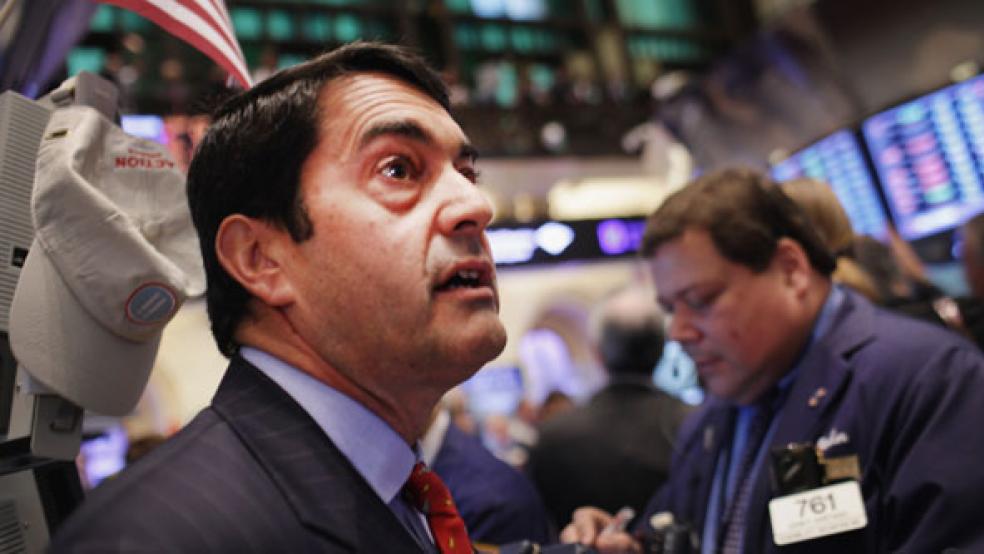U.S. stocks plunged Thursday morning, with the Dow Jones Industrial Average plummeting more than 300 points within minutes of the opening bell as investors worried about the global economic outlook and the ability of central bankers and political leaders to stabilize teetering economies.
By noon, the Dow was off 399 points, or 3.6 percent, and all 30 stocks in the index were in the red. The Standard & Poor’s 500-stock index, meanwhile, had fallen 38 points, or 3.3 percent.
Those drops followed a steep selloff in overseas markets and continued a slide that gained momentum Wednesday afternoon after the Federal Reserve announced that it would launch a program dubbed “Operation Twist.” That program will see the central bank move $400 billion from short-term to long-term Treasuries in an effort to lower long-term interest rates.
Major European indexes -- including Britain’s FTSE 100, Germany’s DAX, and France’s CAC 40 -- all dropped more than 4.5 percent. Hong Kong’s Hang Seng index was nearly 5 percent lower, while Tokyo’s Nikkei index was down more than 2 percent.
The Fed’s announcement was expected, but once it was announced, investors were faced with the stark reality that, while political leaders are unable to agree on fiscal policies that could help, the monetary moves by the nation’s central bankers can’t provide the added jolt the economy needs. “Economy already in recession,” tweeted economist Nouriel “Dr. Doom” Roubini. “Whatever the Fed does now is too little too late.”
Other economists disagreed with the notion that the U.S. has entered a double-dip recession, but offered similar conclusions about the Fed action. “These measures can’t make the economy worse, but neither, we think, will they make things much better,” Ian Sheperdson, chief U.S. economist at High Frequency Economics, wrote in a note to clients Thursday. “Right now the economy is expanding, but a fiscal kick is much more likely to keep it growing than fiddling with the Fed’s balance sheet.”
Moving to buy before the Fed does, and spooked by dour economic readings, investors pushed yields on the 10-year Treasuries to a record low of 1.762 percent.
The Federal Open Market Committee itself offered a reminder of just how gloomy the global economic picture remains, noting “significant downside” to its economic forecast. “Hidden behind the Greek drama over the past few weeks and unveiled again yesterday with the FOMC statement and action, the unfolding global economic slowdown is back to front and center,” Miller Tabak strategist Peter Boockvar wrote in a Thursday morning note to clients.
Those global economic fears were exacerbated by data showing slowdowns in business activity in Europe and China. A gauge of services and manufacturing activity in the Euro zone fell more sharply than economists had expected and indicated a contraction for the first time since July 2009. A preliminary reading on China’s manufacturing for September indicated a slight decline, and a third straight month of contraction.





